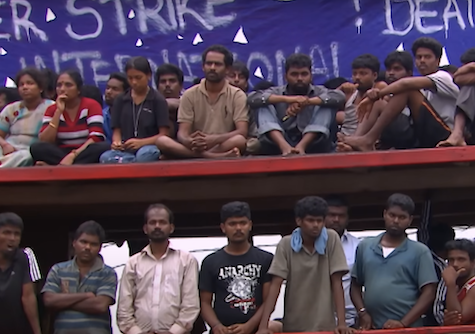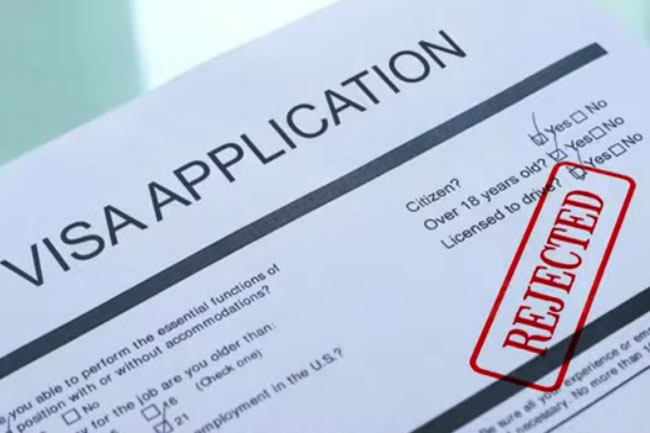Labor's new immigration Bill brings with it the very tangible risk of incentivising non-cooperation and leading to unjust removals of long-standing Australian residents, Dr Abul Rizvi writes.
*This article is a transcript of Dr. Abul Rizvi's opening statements in a Senate Committee examining this Bill.
FOR ANY VISA SYSTEM to operate efficiently and effectively, there must be mechanisms that ensure non-citizens who have exhausted all legal options to remain in Australia can be removed.
For some non-citizens – particularly non-citizens subject to criminal deportation – a lengthy period in immigration detention is sometimes necessary to make all the necessary removal arrangements and for the non-citizen to be available for removal.
If immigration detainees can readily avoid removal simply by not cooperating with the Department of Home Affairs, there is a very real risk of creating an incentive for a growing number of non-citizens who are subject to removal to also not cooperate. That would undermine the objectives of an efficient and effective visa system.
The High Court decision in the second half of 2023 has increased the incentive for non-citizens to not cooperate in their removal. They now know that the Department of Home Affairs must release them from immigration detention if they can delay removal through non-cooperation. This is particularly the case for nationals of countries that do not accept back their citizens unless those citizens are returning voluntarily.
There must be some penalty for non-cooperation.
The question is whether the penalties for non-cooperation, as proposed in this Migration Amendment Bill, are proportionate to ensuring cooperation in the vast majority of circumstances and whether penalties are the only or best option in all cases.
In some cases, it may be better to also offer incentives for return such as re-integration assistance. That may also be better from a taxpayer perspective.
The gaol option should be used as a last resort, such as in criminal deportee cases.
Against that background, the proposal in this Bill for a minimum mandatory sentence of 12 months may be excessive. That is a judgement that must be made by this Committee and this Parliament.
But, some penalty for non-cooperation must exist to avoid the risk that non-cooperation in removal becomes much more common.
There is also a question about the range of non-citizens who are covered by this Bill. The biggest cohort implicitly included in this Bill are those boat arrivals who were subject to the former Government’s fast-track asylum process and were refused asylum. That cohort may be upwards of 7,500 people.
Given the legitimate criticisms of the fast-track process – and the fact those people have now been living and contributing to Australian society for over a decade – this Parliament should find a way to provide those persons with a pathway to permanent residence.
It would be wrong for those persons to be subject to removal without proper consideration, on the one hand, of the contribution they have made and continue to make to Australian society — and on the other hand, of the potentially enormous costs and difficulties associated with removing such a large number of people.
Australia has never gone through such a massive involuntary removal process of long-standing residents.
With regard to the provision in the Bill to ban nationals from listed countries from access to certain types of visas, I would note that, to some degree, the Minister already has that power.
If this new power is to be used in some form of negotiation with potentially listed countries, it would make sense for that negotiation to be based on an appropriate mix of carrots and sticks. A possible carrot would be to offer the relevant nation a limited work and holiday visa, as we have tried in the past.
I doubt a negotiation solely using a stick approach would be effective.
This article is a transcript of the opening statements made by Dr Abul Rizvi in a Senate Committee examining this Bill.
Dr Abul Rizvi is an Independent Australia columnist and a former Deputy Secretary of the Department of Immigration. You can follow Abul on Twitter @RizviAbul.
Related Articles
- Albanese Government is complicit in the cruel deportation of Australians
- Turning point for student visas and net migration now confirmed
- How international education will be affected by net migration target
- Australian governments have never managed net migration
- Dutton's fearmongering over asylum seeker arrivals is overtly hypocritical
 This work is licensed under a Creative Commons Attribution-NonCommercial-NoDerivs 3.0 Australia License
This work is licensed under a Creative Commons Attribution-NonCommercial-NoDerivs 3.0 Australia License
Support independent journalism Subscribe to IA.















